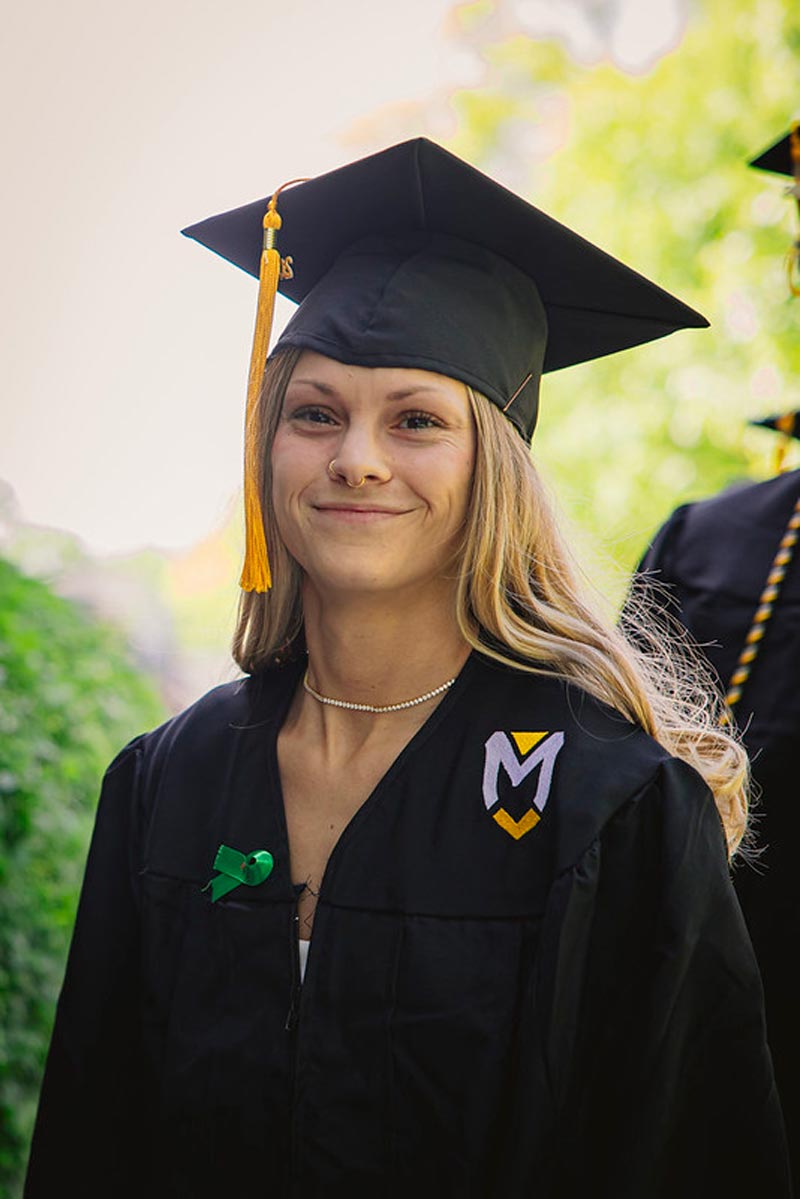Exploring Your Financial Aid Options
Paying for college can feel overwhelming, but understanding your financial aid options is the first step toward making smart, sustainable choices.
At Manchester University, we encourage students to begin with federal grants & loans, then investigate federal loan options.
While scholarships don’t necessarily require a FAFSA, both state and federal grants and federal student loans are awarded based on the information from your completed FAFSA form.
Once you’ve explored the funding options above, private student loans may be able to fill any remaining funding gaps and provide additional support.
Federal Student Loans
Filing the FAFSA unlocks potential for both grant aid and direct loans from the U.S. Department of Education’s Office of Federal Student Aid.
Federal Direct Loans are an option for students and offer low interest rates to students even without a credit check.
You should consider federal student loans before private loans that often require a cosigner while federal student loans do not.
Before you apply for a private loan, complete the FAFSA to see if you qualify for a federal loan.
Federal Direct Loans Subsidized and Unsubsidized
Subsidized Loan – Subsidized Loans are available to undergraduate students with financial need and are enrolled at least half-time (6 credit hours). Students are not required to pay the interest on the loan while enrolled at least half-time or for the first 6 months after they leave school.
Unsubsidized Loan – Unsubsidized Loans are available to undergraduate and graduate students; there is no requirement to demonstrate financial need. Students are responsible for paying the interest on a Direct Unsubsidized Loan during all periods.
Required steps for student to complete:
- Go to StudentAid.gov.
- Log in using your FSA ID username and password.
- Go to Checklists.
- Select I’m in School.
- Complete a Master Promissory Note (MPN) to take out a federal student loan.
- Complete entrance counseling before getting a student loan.
For more information, click here.
Federal Direct PLUS Loan for Parents
PLUS Loan for Parents – The loan can help pay for education expenses not covered by other financial aid. The loan is in the parent’s name. The parent must be the biological or adoptive parent (or in some cases, the stepparent) of a dependent undergraduate student enrolled at least half-time at an eligible school.
Required steps for parent to complete:
- Go to StudentAid.gov.
- Log in using your FSA ID username and password.
- Go to Checklists.
- Select I’m a Parent.
- Apply for a parent PLUS Loan to help pay for your child’s education expenses not covered by other aid.
- Complete a Master Promissory Note (MPN) for a parent PLUS loan.
For more information, click here.

Compare Private Student Loan Options
Manchester will process a private educational loan from any lending institution./
Understanding the rates and terms of a private student loan is important to make the best decision. You can use the INvestED Student Loan Marketplace to compare actual rates from multiple private student loan lenders. This tool allows you to compare rates and terms to help you find the best option based on a soft credit check. ELM Select shows ranges of rates from multiple lenders.
Additional Private Student Loan Info
Private loans, sometimes called alternative loans, are available from private lenders and offer additional financial assistance. A credit check is required for private loans and some of the loan terms and conditions may be based upon your credit standing. If you are a student, please know that most lenders will require a co-signer.
Carefully consider your needs before you borrow. We recommend that you exhaust all federal grant and loan programs before you consider a private loan.
Student Financial Services will process a private loan from any lender of your choosing. The lender is not required to be listed in the links above. The lenders reflected in the links above are those being utilized by students attending Manchester University. Manchester University has no affiliation with any private lenders and financial aid employees abide by an established Code of Conduct.
Unlike federal loans, private lenders set the terms for the loans, which can mean they have different criteria for both loan eligibility and loan rates. Before you decide to apply for a private student loan, we encourage you to research all of your options and keep a few things in mind: Private student loans have a range of interest rates, fees, and repayment options.
- We strongly encourage you to apply with a credit-worthy cosigner to both increase your chances of being approved for the loan and to obtain a better interest rate.
- Interest rates can either be fixed or variable:
- Variable rates can increase or decrease over time, depending on market conditions.
- Interest rates on private loans may depend on your and/or your cosigner’s credit rating.
- Before accepting any private student loan, you should determine the interest rate and any fees associated with the loan.
If you have general questions about private loans, please contact our office. However, please remember that we cannot offer assistance on choosing a lender or product. Each family’s circumstances are unique, and the loan terms and benefits offered to you may be dependent upon your specific credit standing.
The Truth in Lending Act requires a lender to obtain a self-certification signed by the applicant before disbursing a private education loan. If you have not provided a signed copy of the Applicant Self-Certification form to your lender, you can access the form online.







